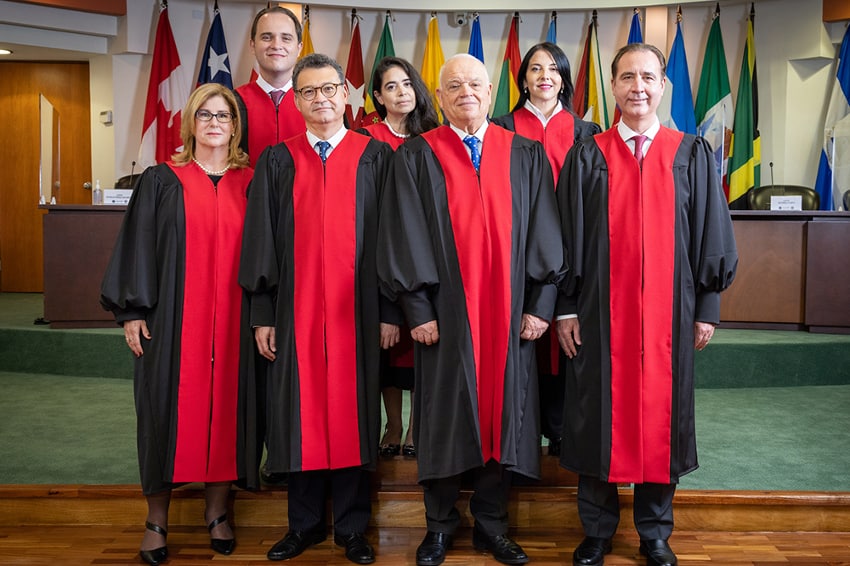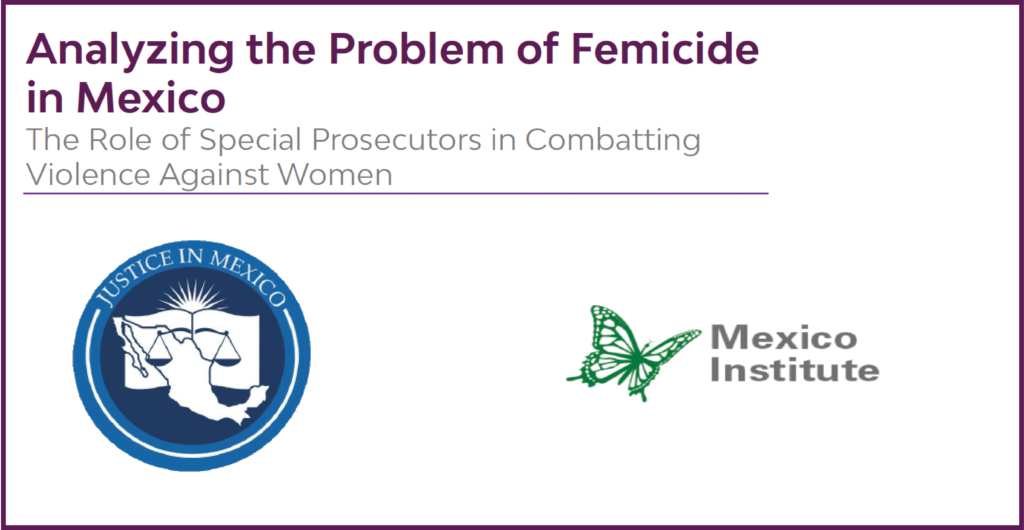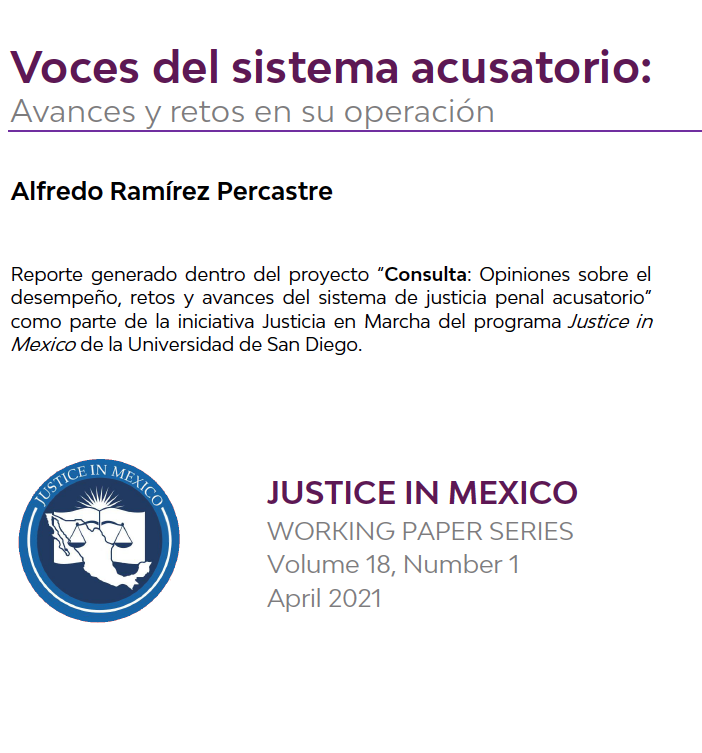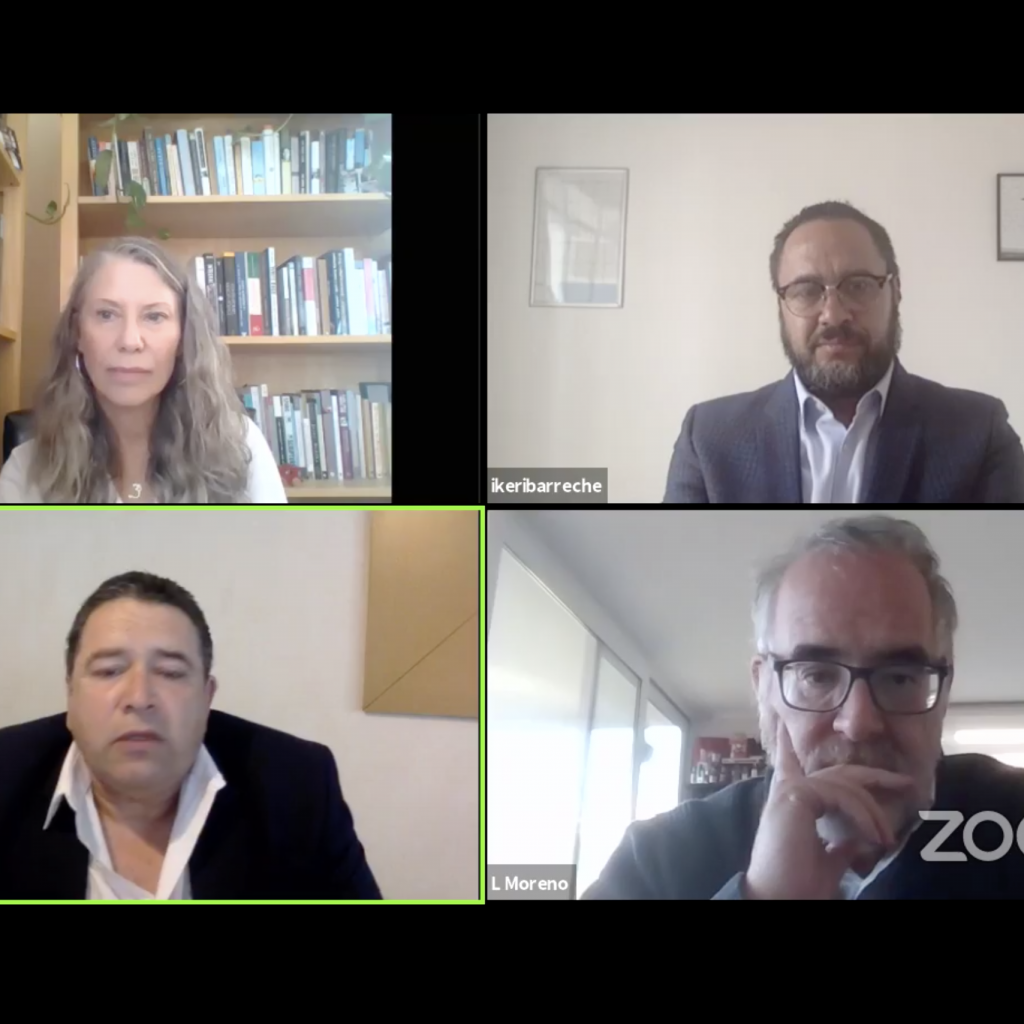02/01/20 (written by kheinle) — Critics are fiercely pushing back against a package of proposed reforms to Mexico’s justice system made public in mid-January. Alejandro Gertz Manero, Mexico’s Attorney General (Fiscal General de la República, FGR), and Julio Scherer, the president’s chief legal adviser, prepared a draft of reforms that was leaked on January 15, 2020, causing immediate pushback from experts who argue it would fundamentally undermine the country’s criminal justice system and devalue human rights protections.
Background on Proposed Reforms
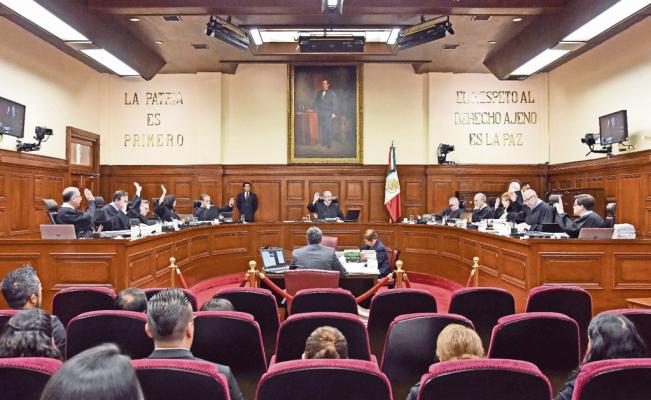
The initiatives have been aptly referred to as contrarreforma, or counter reforms, giving reference to the overhaul of the judicial system in Mexico in 2008 through sweeping constitutional reforms. Critics argue that the draft reforms made public in January 2020 run counter to and undermine the 2008 reforms and subsequent implementation in 2016 of the Accusatorial Criminal Justice System (Sistema de Justicia Penal Acusatorio, SJPA).
Still, the bills seek to address Mexico’s record-breaking levels of crime and violence. In 2019 alone, there were 34,582 murders – an all-time high – according to data reported by Mexico’s Secretary General of National Public Security (Secretariado Ejecutivo del Sistema Nacional de Seguridad Pública, SESNSP). The proposals would aim to reduce impunity and recidivism, writes Human Rights Watch, which is desperately needed in a country where only 2% of all crimes are resolved, according to a 2018 report by the United Nations. Attorney General Gertz added that they would also seek to address corruption and crime.
The bills are still in draft form, having not yet obtained the final approval from the Attorney General’s Office. They were expected to be presented in full to Congress in February, but there is no indication of when exactly that will be.
Main Concerns
Nevertheless, there are several key proposals put forth within the reforms that have created considerable pushback.
Arraigo
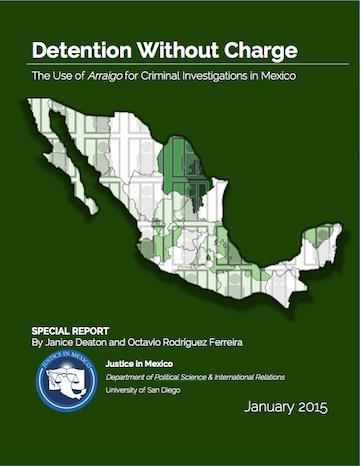
Perhaps the most controversial change would be the expansion of the already fraught procedure of arraigo, a form of preventive detention. Under current Mexican law, suspects in organized crime cases can be held for up to 40 days without being charged while investigations unfold, and extend it to 80 days at the prosecutor’s request. In either case, prosecutors are required to obtain judicial authorization to detain a suspect under these conditions. The proposed reforms seek to expand upon this initial 40-day holding period by allowing “prosecutors to seek prolonged pre-charge detention for any crime, without bringing charges,” explains Human Rights Watch. This would also expand the current law that only allows arraigo in cases involving organized crime to now cover any crime.
Critics argue that this change would set the nation back in terms of the judicial and social reforms enacted the past few decades, specifically with the inauguration of the SJPA in 2016. Outspoken political analyst Denise Dresser commented on the proposals in an OpEd titled, “The Fourth Inquisition,” a play on President Andrés Manuel López Obrador’s movement, the Fourth Transformation. “If the authoritarian regression that he has in mind continues, the López Obrador government will return to a judicial and criminal system built on incarcerating innocents, manufacturing the guilty, and creating injustices,” she said. “The contrarreforma wants to do away with control judges that today value the legality of detention and care for the rights of the victims and the accused.”
Read more about arraigo in Justice in Mexico’s 2015 special report, “Detention Without Charge.”
Admissibility of Evidence
A second change put forth would make it easier for evidence obtained through illicit (e.g., torture, wiretapping) means to be used in courtroom proceedings. If ratified, the Mexican Constitution would shift from barring evidence obtained through the “violation of human rights” to now allowing judges the final say in whether or not to admit such evidence. As Human Rights Watch precisely notes, this amendment would undermine and effectively undo all of the change made to protect individuals’ human rights as part of Mexico’s 2017 General Law on Torture. While recognizing the law has not been implemented as quickly as was hoped, the progress made would still effectively be undermined by the proposed changes by making evidence received through torture more viable and utile in the courtroom.
Emilio Álvarez, a Mexican Senator and a rights activist, spoke out on the measure. “It is an extraordinarily regressive reform that seriously threatens human rights and processes given as basic, such as presumption of innocence.”
Mexico’s National Criminal Code and the New National Code of Criminal Procedures
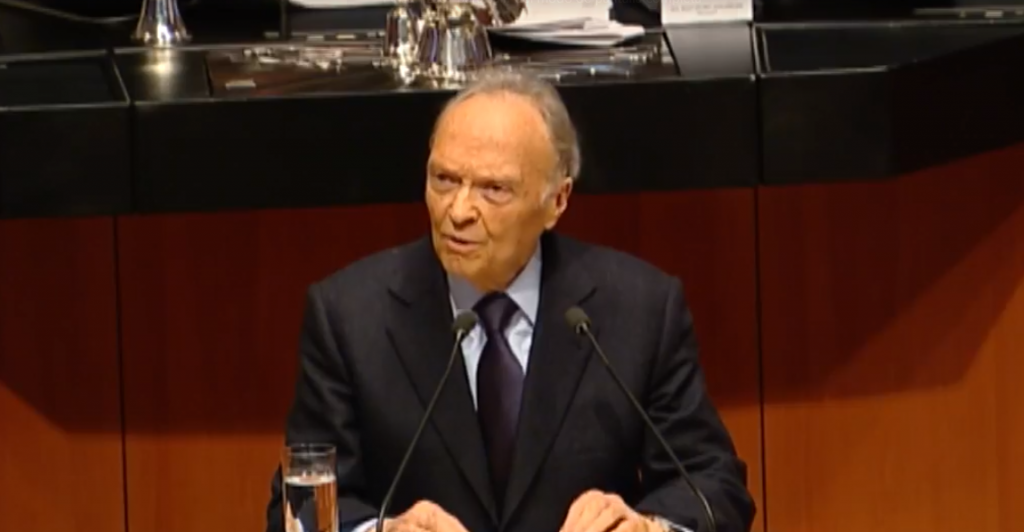
The Constitutional Initiative (Iniciativa Constitucional) would amend 14 articles of the Mexican Constitution to allow for the changes expressed here (e.g., arraigo, admissibility of evidence, freedom of expression). It would also create a new National Criminal Code (Código Penal Nacional, CPN). Attorney General Gertz acknowledged the latter, announcing the proposal to create a uniform, singular criminal code, which would replace already-existing codes at the state and regional levels. Another part of the proposals would put in place a new National Criminal Procedural Code (Código Nacional Procesal Penal, CNPP).
In a January 2020 publication, “La Nuevo Iniciativa de Reforma Procesal Penal,” Michael Mandig, attorney at law in Arizona with extensive legal work in Latin America, cautioned against installing a new CNPP, the current version of which was entered into force in 2016. “Procedural changes of such proportions require cultural transformations, economic inversions, professional commitments, and societal acceptance; it cannot be implemented over night.” Mandig also commented on the proposal to eliminate the “intermediary stage” in criminal proceedings, thereby eliminating the division of responsibilities among judges and specifically that of the Control Judge (juez de control). This was a critical pillar in the creation of the SJPA, as Mexico moved towards a more accusatorial judicial system, as opposed to an inquisitorial model. By blending the judges’ roles together once again through the proposed CNPP reform, it will render the courts partial, argues Mandig.
Freedom of Expression
Another concern raised is the potential undermining of freedom of expression put forth in the reforms. According to Mexico’s Regional Director Leopoldo Maldonado of Artículo 19, an international human rights organization, the reforms would criminalize freedom of expression through charges of defamation, slander, and libel. “This is not only about journalism,” he said. “It is about any person’s right to exercise freedom of expression in this country, thereby running the risk of being charged with this type of crime.”
Next Steps
It is believed that President Andrés Manuel López Obrador’s party, the National Regeneration Movement (Movimiento Regeneración Nacional, MORENA), backed the leaked reforms. The president, however, denied being involved in or knowing about the draft reforms during one of his daily addresses to the nation. “I have not seen [the law]; I do not know of it. Therefore,” he said, “it has nothing to do with us.”
The full package of finalized reforms is supposed to be released in February, at which point Mexico’s Congress will take up the review.
Sources:
Deaton, Janice and Octavio Rodríguez. “Detention Without Charge.” Justice in Mexico. January 2015.
Human Rights Council 37th Session. “Report of the Special Rapporteur on the situation of human rights defenders on his mission to Mexico.” United Nations. February 12, 2018.
Mandig, Michael. “La Nueva Iniciativa de Reforma Procesal Penal – ¿Solución a la Impunidad o Receta para Desigualdad Procesal y Parcialidad Judicial?” No Volver al Sistema Inquisitorio. January 18, 2020.
Dresser, Denise. “La Cuarta Inquisición.” Diario de Yucatán. January 21, 2020.
Oré, Diego. “Critics warn sweeping Mexican judicial reform threatens human rights.” Reuters. January 23, 2020.
“Mexico: Justice System Proposals Violate Fundamental Rights.” Human Rights Watch. January 30, 2020.
“Defensores de derechos humanos combatirán ‘contrareforma’ judicial en México.” El Diario. February 1, 2020.

